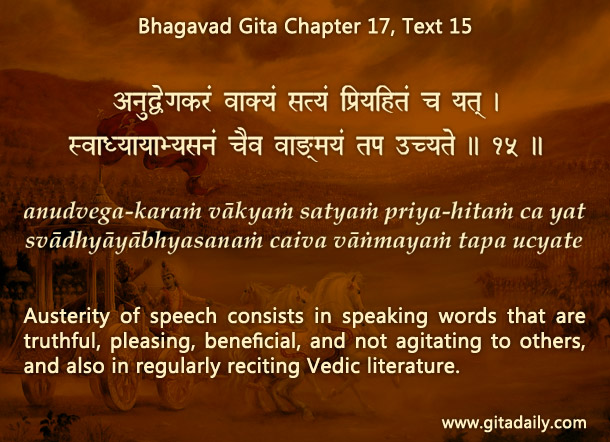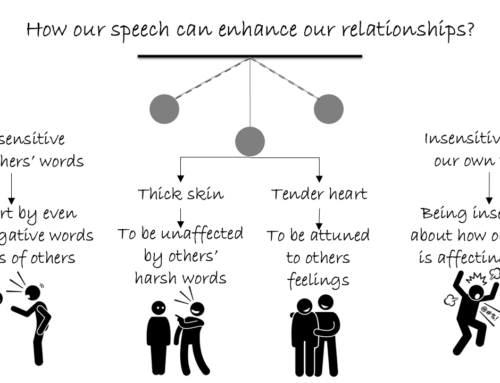Suppose we get into an argument with someone, specifically a loved one with whom we want a long-lasting relationship. We may try to prove our point and may even succeed, thereby feeling triumphant. But our approach will make our loved one feel ununderstood and unhappy. And we have to live with them. When they are unhappy, especially when they are unhappy with us, how can we be happy?
That’s why we need to put first things first: that is, see the argument in the light of the relationship, not the relationship in the light of the argument. Having got our priorities straight, we can then focus on our primary purpose in that interaction: not proving our point, but improving our relationship. This doesn’t mean that we agree with everything they say; it just means that we show them that we want to understand their point and are ready to make efforts to understand it.
Pertinently, the Bhagavad-gita (17.15) urges us to speak the truth in a way that is non-agitating and pleasing. How can we apply this guideline to tackling differences with our loved ones? One way is by striving to express their argument in our words, without judging or minimizing it. Such re-articulation will show them that we want to understand them. Once they feel heard, they may become less agitated and more receptive to hear us.
Additionally, in articulating their point, we will understand their perspective better and thereby understand them better. We may even realize that their point is not so unreasonable and is not so irreconcilable with our point.
When we thus do our part in fostering mutual understanding, arriving at a win-win resolution becomes easier.
One-sentence summary:
When tackling differences with our loved ones, seek not to prove our point; seek first to improve our understanding of their viewpoint.
Think it over:
When tackling differences with our loved ones:
- What’s wrong with trying to prove our point?
- What does putting first things first mean?
- How can we do our part in fostering mutual understanding?
***
17.15: Austerity of speech consists in speaking words that are truthful, pleasing, beneficial, and not agitating to others, and also in regularly reciting Vedic literature.
To know more about this verse, please click on the image
Explanation of article:

Podcast:




“When they are unhappy, especially when they are unhappy with us, how can we be happy?”
In other words: If Momma’s not happy, nobody’s happy. If Daddy’s not happy, nobody cares. *regional proverb [probably the entire Bharat varsa region]
Thank you, Gaurashakti Prabhu, for your kind comment that concisely articulates the point.
Thank you very much for sharing this valuable insight from the perspective of this very valuable verse from Gita. Gita made easy.
Very nice Prabhuji
Thanks.